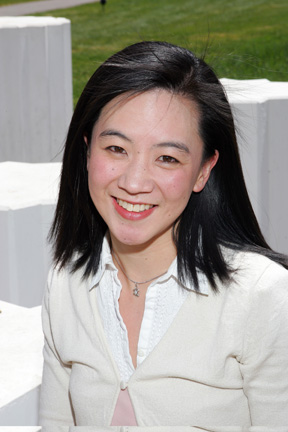

by guest blogger Hahrie Han, Knafel assistant professor of the social sciences at Wellesley College
March was Women?s History Month?and what a month March 2012 was for women. From Rush Limbaugh?s attack on Sandra Fluke to Virginia?s new law requiring an ultrasound before an abortion to Mitt Romney?s assertion that he would cut funding for Planned Parenthood, it seems like powerful public leaders and behemoth institutions alike are turning back years of hard-fought victories for women. As Secretary of State Hillary Clinton remarked, women are inexplicably the focus of attacks from ?extremists? around the world: ?They want to control how we dress, they want to control how we act, they even want to control the decisions we make about our own health and bodies.?
As women, we are at the center of these culture wars, and it?s easy to feel as though we are powerless. But history gives us a simple lesson: If we don?t like what is happening, the power to change the conversation lies with us.
The political impasse we have reached over many women?s issues is not inevitable. For example, the polarized, partisan stances on abortion that we see today were hardly a foregone conclusion when Roe v. Wade was decided in 1973. Today, the religious right leads the pro-life movement within the Republican Party, while the Democrats uphold the banner of the pro-choice movement. In the 1970s, however, the Southern Baptist Convention, now a leading pro-life group, actually endorsed the Roe decision?a concept that seems unimaginable today. And the rise of evangelical Christianity in modern American politics? It actually started with the Democrats, when Jimmy Carter, a born-again southern Baptist, ran for President in 1976 and supported restrictions of federal funding for abortions.
So how did we get to the polarized politics of today? In politics, people are power. Political groups carefully adopt positions that bring more people?and, hence, more power?to their side.
The politics of reproductive rights really polarized when political groups realized they could strategically use abortion to win public support. As fellow political scientist Gerald Rosenberg argues, the main political legacy of Roe was not to increase the number of women who could safely and legally receive abortions, or to shift public support for abortion. Instead, its main effect was to galvanize a previously quiescent pro-life movement. Incensed by the Supreme Court?s ruling, pro-lifers rose up in opposition of Roe, and conservative groups seized the opportunity. Once they realized they could fan the flames of pro-life sentiment to garner more support, conservatives began to fund groups like the Moral Majority. It wasn?t until 1980 that Republicans took a strong pro-life stance, when they realized it could help win over religious conservatives. Democrats responded in kind. They reversed positions Carter advocated as president and adopted a strong pro-choice position when progressive women rallied to their side.
Change is possible, but it depends on changing the power dynamic around women?s issues. And that power dynamic is about us?the people political groups want to mobilize.
How can we change the discussion, when people?s views seem so entrenched, so extreme? Most people do not come to politics with pre-formed extreme positions. In his masterful study of pro-life activists, sociologist Ziad Munson shows that many people who are now fervent pro-life activists actually joined the movement when they were undecided about their view on abortion, or even pro-choice. They joined the pro-life movement not because they supported its ideology, but because they had just moved to a new area and wanted to meet people, or to support a friend who invited them to a meeting.
People are not persuaded by reason or expertise. We are persuaded by our relationships and emotion. I study the reasons why people participate in politics, and my research shows that people make their political decisions for largely personal reasons. Friends are more powerful than any policy expert in influencing people?s political choices.
Instead of letting the extremists dictate the dialogue, we can reverse this backlash against women by talking to our friends and our neighbors. Through our every day conversations, we can begin to change the dialogue about women?s issues.
 Hahrie Han is the Knafel assistant professor in the social sciences at Wellesley College. Her book, Moved to Action: Motivation, Participation, and Inequality in American Politics (2009), examines the way people become motivated to participate in politics, looking particularly at ways to engage underprivileged populations in political action. Her work has been published in the American Journal of Sociology, the British Journal of Political Science, Legislative Studies Quarterly, and Political Behavior, among others.
Hahrie Han is the Knafel assistant professor in the social sciences at Wellesley College. Her book, Moved to Action: Motivation, Participation, and Inequality in American Politics (2009), examines the way people become motivated to participate in politics, looking particularly at ways to engage underprivileged populations in political action. Her work has been published in the American Journal of Sociology, the British Journal of Political Science, Legislative Studies Quarterly, and Political Behavior, among others.
?
?
?
For more from Maria Rodale, go to www.mariasfarmcountrykitchen.com
gloria cain kandi burruss occupy portland occupy portland the hunger games bears lions bears lions
No comments:
Post a Comment